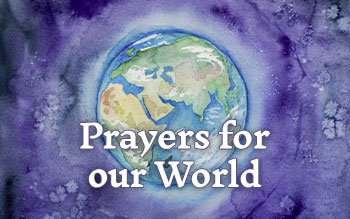Displaying items by tag: Military
USA: military suicides highest ever
US military suicide deaths reflect a national trend. The national suicide rate has increased by 33% since 1999, and suicide is the second leading cause of death among people 10 to 34 years old. 325 active-duty members died by suicide in 2018, the highest number since collecting data began in 2001. The defence department said suicide rates among the military population are ‘devastating, unacceptable and not going in the desired direction’. Every life lost has a deeply personal story that shatters the lives of families. The defence and veterans affairs departments are working to reduce suicide in the ranks and among veterans, who die at an average rate of twenty a day. Between January and March 2019, ninety active duty service members committed suicide - 30 soldiers, 20 sailors, 26 airmen, and 14 marines.
Poland: U.S. Agrees To Station 'About 1,000' More Military Personnel
The United States has agreed to station "about 1,000" more military personnel in Poland as the government of the East European country seeks to counter what it perceives as a growing Russian threat.
However, the joint U.S.-Poland declaration signed by President Donald Trump on June 12 stopped short of calling it a permanent presence, potentially easing Kremlin concerns about a larger U.S. military presence near its western border.
Trump earlier in the day said the increase in U.S. forces in Poland could come at the expense of Germany -- whom he criticized for underspending on NATO defense and overspending on Russian gas.
"We would be taking them out of Germany or we would be moving them from another location. It would be no additional troops to Europe," Trump said shortly before reaching the agreement.
The United States has 52,000 troops based in Germany, Trump said. The Pentagon told RFE/RL that the sourcing of the military personnel and other details of the agreement "are still being worked out."
About 4,500 U.S. troops have been stationed in Poland on a rotational basis for the past few years in response to Russia's 2014 annexation of Crimea and Moscow's continued military support for separatists in eastern Ukraine.
NATO separately placed about 1,200 troops in Poland in 2017 as part of its efforts to beef up deterrence against Russia in Eastern Europe and recently agreed to invest $269 million to support U.S. forces in the country.
The 1997 NATO-Russia Founding Act pledges the alliance to carry out its collective defense without the "additional permanent stationing of substantial combat forces." However, the pledge only applied to the "current and foreseeable security environment" at the time.
NATO Secretary-General Jens Stoltenberg said the June 12 U.S.-Polish agreement was "fully in line with NATO's international commitments."
"When the world changes, we have to adapt to make sure that we can continue to protect all allies," Stoltenberg said in the statement, possibly hinting at Russia's actions in Ukraine.
Poland last year proposed spending as much as $2 billion to host a permanent U.S. armored division, which consists of between 10,000 and 15,000 troops, to strengthen its defense against Russia.
Russia, which occupied part of Poland under the tsars, "is again showing its imperial face" by its actions in Ukraine, Polish President Andrzej Duda said at the joint press conference with Trump.
According to the agreement, the U.S. military will expand its "enduring presence" in Poland by about 1,000 personnel "in the near-term." Poland will finance that expanded presence as well as additional military infrastructure, including a U.S. divisional headquarters.
Russia could seek to build up its military presence in the exclave of Kaliningrad in response, former U.S. Army Europe commander Lieutenant General Ben Hodges told RFE/RL. He said the Kremlin could also put more pressure on Belarus to allow its troops into that country. Both Kaliningrad and Belarus border Poland.
Though the U.S. agreement fell far short of Poland's initial request, it is something that "could be scaled" up in the future should developments in Eastern Europe demand it, Eugene Chausovsky, a Eurasia analyst at Stratfor, told RFE/RL.
"This is something that the Polish government can claim as a victory of sorts," he said of the deal.
Poland helped win over Trump's support for the increased military presence by agreeing to purchase U.S. fighter jets as well as liquefied natural gas, Chausovsky said.
Trump confirmed during the joint press conference that Poland will buy nearly three dozen F-35 fighter jets -- worth in excess of $2.5 billion -- as well as an additional $8 billion of liquefied natural gas.
Poland is seeking to wean itself off Russian energy, which accounts for nearly 70 percent of its gas imports. Duda will travel to Houston with Energy Secretary Rick Perry to meet executives of U.S. energy companies during his six-day visit to the United States.
Washington and Warsaw are seeking to halt Russia's plans to build an $11 billion gas pipeline to Germany. The pipeline would make Germany a "hostage of Russia" while also supporting the Russian economy, Trump said.
"We are protecting Germany from Russia, and Russia is getting billions and billions of dollars of money from Germany," Trump said ahead of his meeting with Duda.
He highlighted that Germany was only spending about 1 percent of gross domestic product on defense, below the 2 percent threshold set by NATO members in 2014.
Hodges said moving troops from Germany to Poland would be taken as a sign that the United States was punishing Berlin for its failure to meet defense spending limits.
However, he said, maligning Berlin was not in Washington's interest.
"We have to make sure that we treat Germany as our most important ally. Spending is such a small component of the relationship. You can't put a price tag on" all that Germany does for the United States, said Hodges, who is now with the Center for European Policy Analysis.
Article by Todd Prince
Increased risk of war, warns report
The 2018 annual Munich Security Report cited growing pressure on nuclear disarmament treaties and ongoing security concerns in eastern and central Europe as a cause for concern, and most worryingly the erosion of arms control agreements. ‘Deployment of additional weapons and tensions over military exercises has increased the risk of an inadvertent armed clash’, the report warns. ‘In this dire state of affairs, miscalculations and misunderstandings could lead to unintended military clashes. The Ukraine conflict was a stumbling block to de-escalation of tensions between Russia and the West.’ America’s decision to provide lethal arms to Ukraine would cement the current stalemate as countries in eastern Europe struggle in an environment of contested security, with the EU and NATO on one side and Russia on the other, at a time when the EU's Eastern partnership policy has ‘lost its steam’.
North Korea: Olympic involvement, a trigger for prayer
The North Korean missile crisis must be turned into a rallying cry for prayer for persecuted Christians in that country, says Release International, which supports Christians under pressure around the world. North Korea brought forward its annual display of military might to 8 February ahead of the Winter Olympics in South Korea. The muscle-flexing has been described as grandstanding in a crisis that could threaten nuclear war - but many believe the crisis should be turned into a rallying cry for prayer for the persecuted. North Korea is probably the harshest persecutor of Christians on the face of the earth.
Maldives: flashpoint in Indo-Chinese rivalry
A power struggle in the Maldives is taking centre stage in a battle for regional influence between India and China. Maldives President Yameen declared a state of emergency after the supreme court ordered him to free political prisoners and opposition politicians he jailed. Security forces then stormed the court and arrested two judges and a former leader. The remaining judges annulled a previous ruling. It is being called an assault on democracy. The political drama sparked concern in India, which issued a strong statement saying it is imperative for the government to adhere to a free trade agreement it made with the Maldives. India views China as a geopolitical foe in Asia and is pushing to maintain geo-strategic supremacy in the Indian Ocean, with backing from the US and Japan. Meanwhile, it has expanded its influence by building ports in Sri Lanka, Pakistan and Djibouti (now home to its first overseas military base). See also
Iran: weapons-grade uranium warning
Ali Akbar Salehi, Iran’s nuclear programme chief, said on 29 October that Iran can begin producing weapons-grade nuclear material quickly if the nuclear deal with foreign powers fails, and insisted that international inspectors would not be given access to Iranian military sites. In early October President Trump told the world, ‘Iran is not in compliance with the deal, and it needs to be renegotiated even though our allies, and even our enemies, do not agree.’ Mr Trump said that the agreement had not curbed Iran’s missile programme and destabilising activities in the Middle East. Mr Salehi said that, although Tehran prefers to keep the agreement intact, they could quickly ramp up uranium enrichment to produce 20% enriched uranium in four days. He made these comments after meeting the director of the International Atomic Energy Agency, Yukiya Amano. Mr Amano also met President Rouhani and foreign minister Mohammad Javad Zarif. See
The British army
There are particular demands and challenges that come out of the special nature of life in the Army. The Army recognises this, and many layers of welfare support are available. Pray for the Army Welfare Service, delivering a comprehensive and confidential service for the needs of regular soldiers and their families living abroad, or families separated by overseas postings. Pray for the unique family set-ups in army base communities, and for the wellbeing of Army reservists, and, in certain circumstances, veterans. Pray also for God to bless the confidential chaplaincy support that is available (regardless of faith) for all family members of service personnel and those dealing with casualties of war. Community development workers also need our prayers as they provide projects focusing on the learning and personal development activities of children, young people, and their families, both in the UK and overseas.
Global: military ‘killer’ robots
Former defence chief General Sir Richard Barrons says the rise of military ‘killer robots’ is almost inevitable. He stated, ‘The advantages of artificially intelligent war machines that can make decisions, learn and open fire without human control will see countries face growing pressure to adopt the technology, despite ethical misgivings.’ In his opinion a proactive international ban, such as the one called for by technology experts recently, is likely to be flouted by unscrupulous countries. He spoke after over a hundred technology leaders wrote an open letter calling the UN to outlaw ‘lethal autonomous weapons’, the use of which will lead to more civilian casualties and abuses. On 27 August the Bishop of Oxford discussed the ethical implications of Artificial Intelligence on Radio 4. To listen, go to
North Korea: brinkmanship
On 29 August North Korea launched a missile over Japan, saying that it was ‘the first step’ of military operations in the Pacific. State media also repeated threats to the US Pacific island of Guam, which it called ‘an advanced base of invasion’. Russia and China said that US military activity in the region was partly to blame for the increase in tensions. BBC correspondent Jonathan Marcus reported, ‘Launching a rocket over Japanese territory, with the possibility that it could deposit debris on Japanese soil, shows that Pyongyang is intent on maintaining its brinkmanship. However, it is noteworthy that North Korea did not make good on its threat to direct a missile towards the US Pacific territory of Guam - something that might well have precipitated a US military response.’ See also British Isles article 4, ‘Theresa May on North Korea’.
North Korea: US military action an option
The USA says its ‘strategic patience’ with North Korea is over, and suggests it might decide to take preemptive military action: the option was ‘on the table’ if the threat from North Korea’s weapons programme reached a level requiring it. The USA is now exploring a range of new diplomatic and economic measures, and continues to defend the deployment of its missile systems in South Korea. This angers China, but South Korea and the USA say the defence system is needed against North Korea's aggression (twenty years of persuading it to abandon its nuclear ambitions have failed). On Sunday North Korea had a powerful rocket engine test of ‘historic significance’, which could lead to the rebirth of the country's indigenous rocket industry. This came hours before US secretary of state Rex Tillerson met with President Xi Jinping of China - North Korea's only major global ally. Tillerson was thought to have raised the prospect of financial penalties on Chinese companies and banks that do business with North Korea. See









